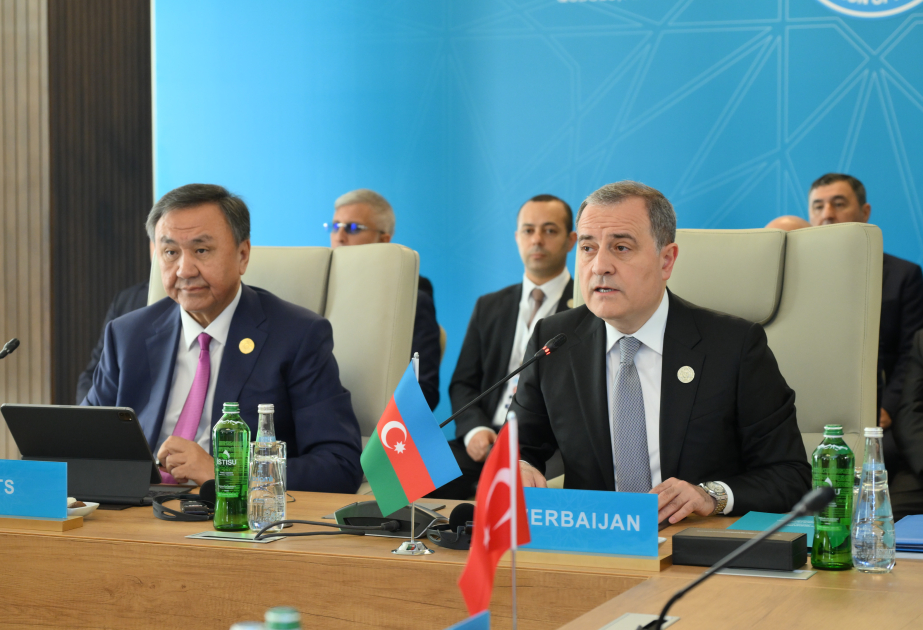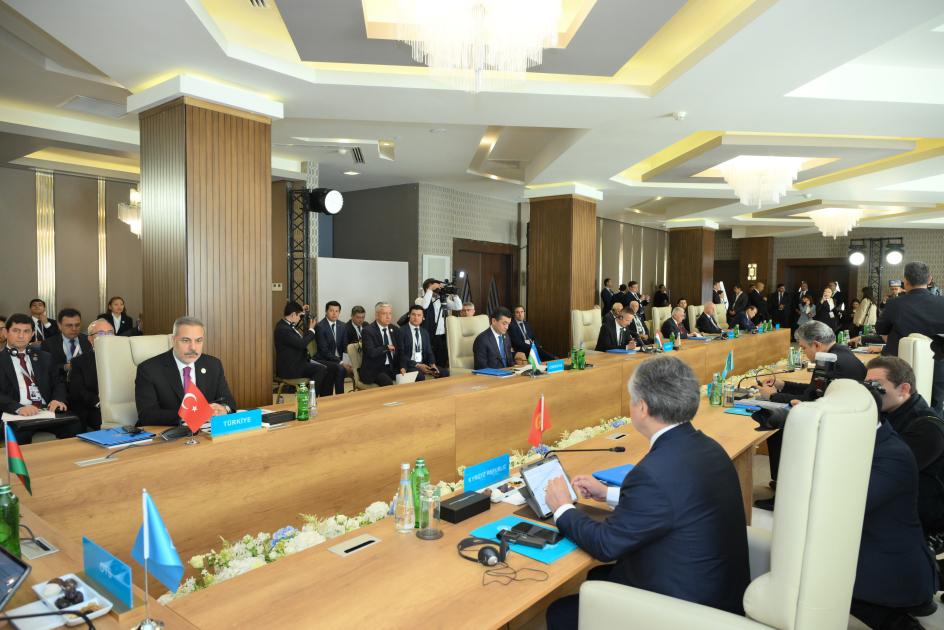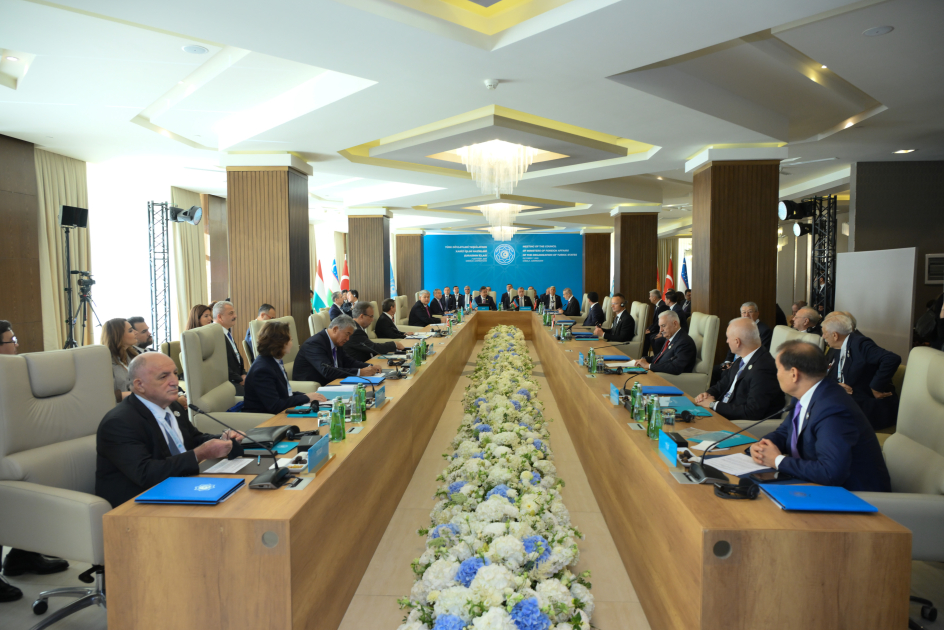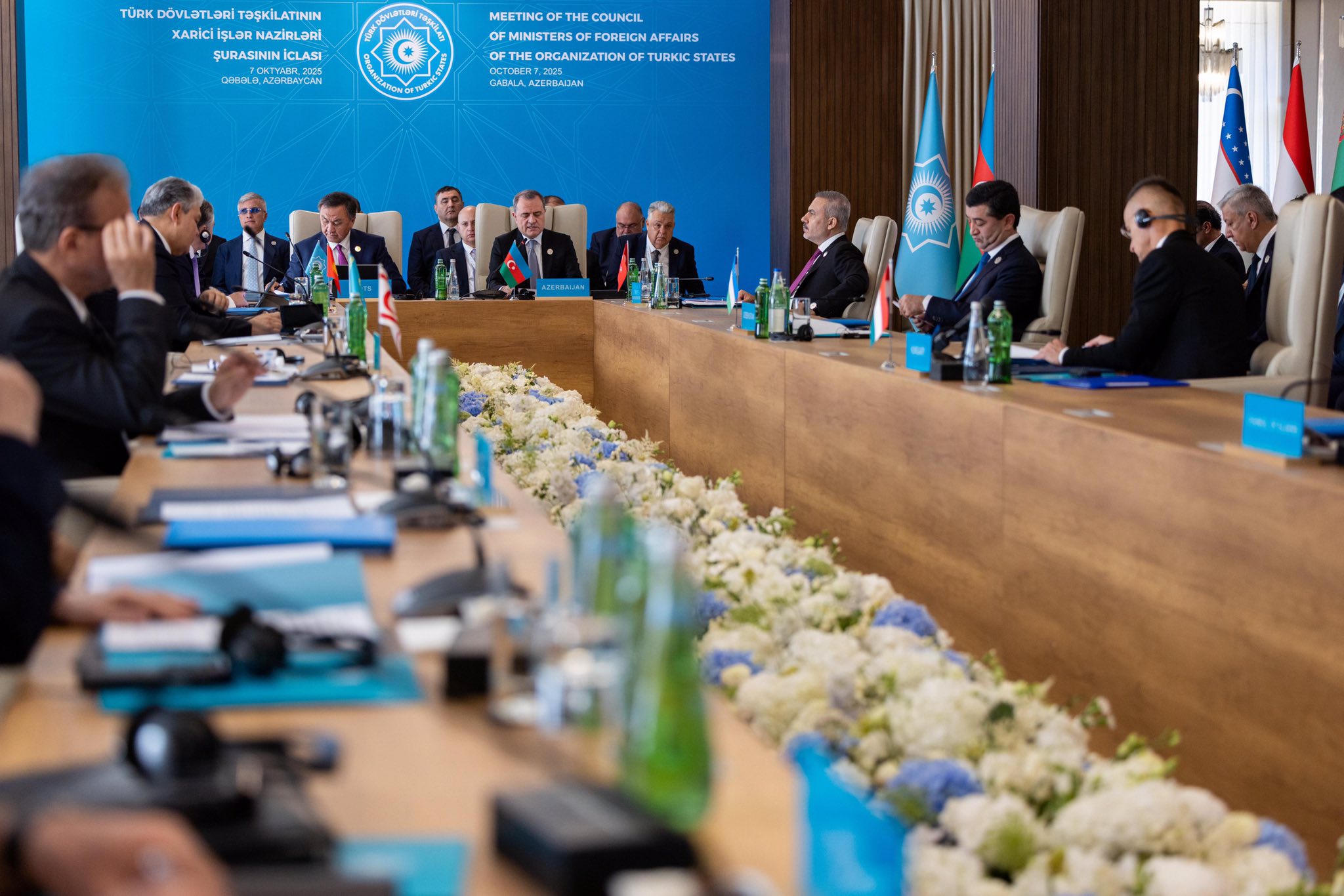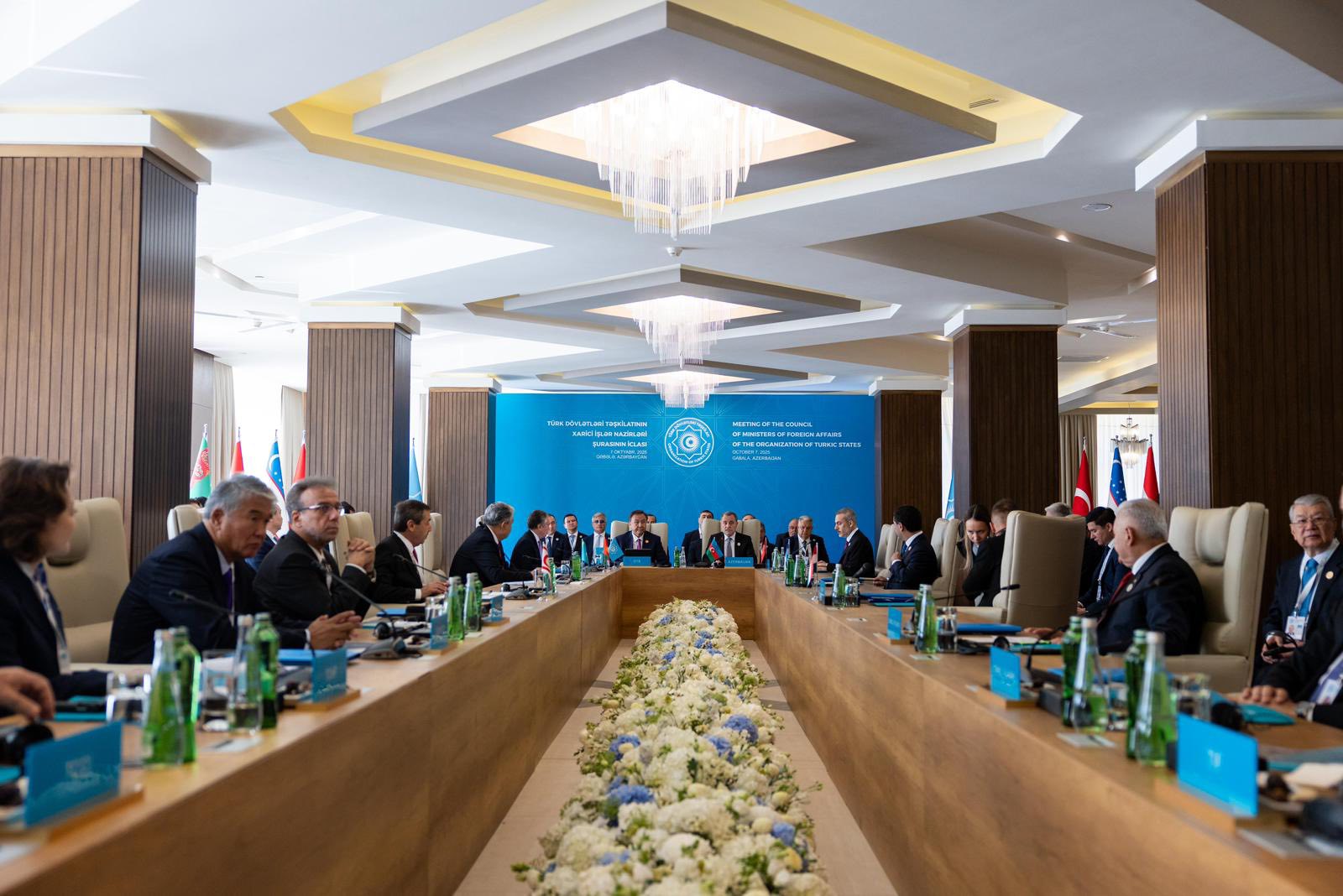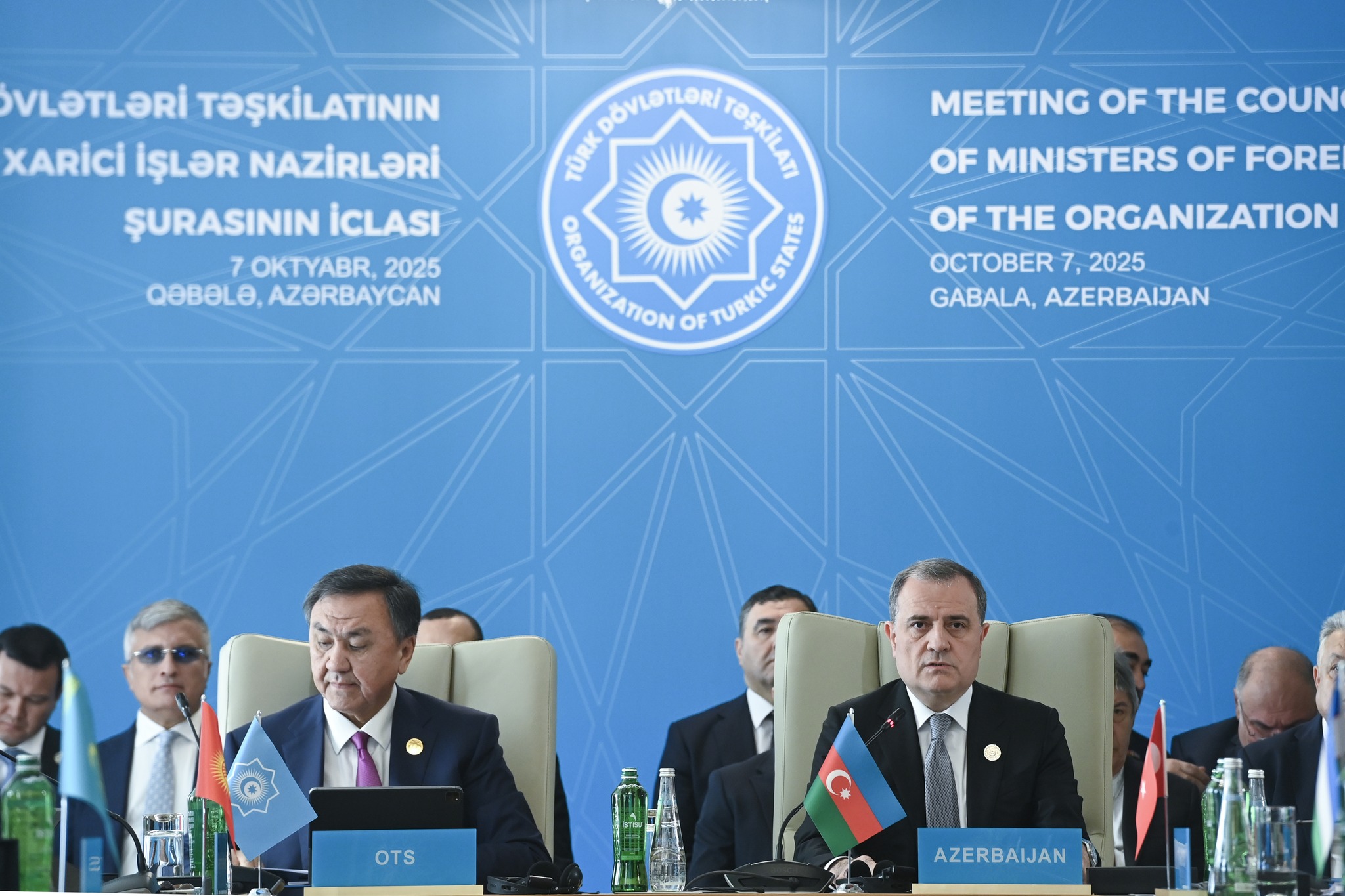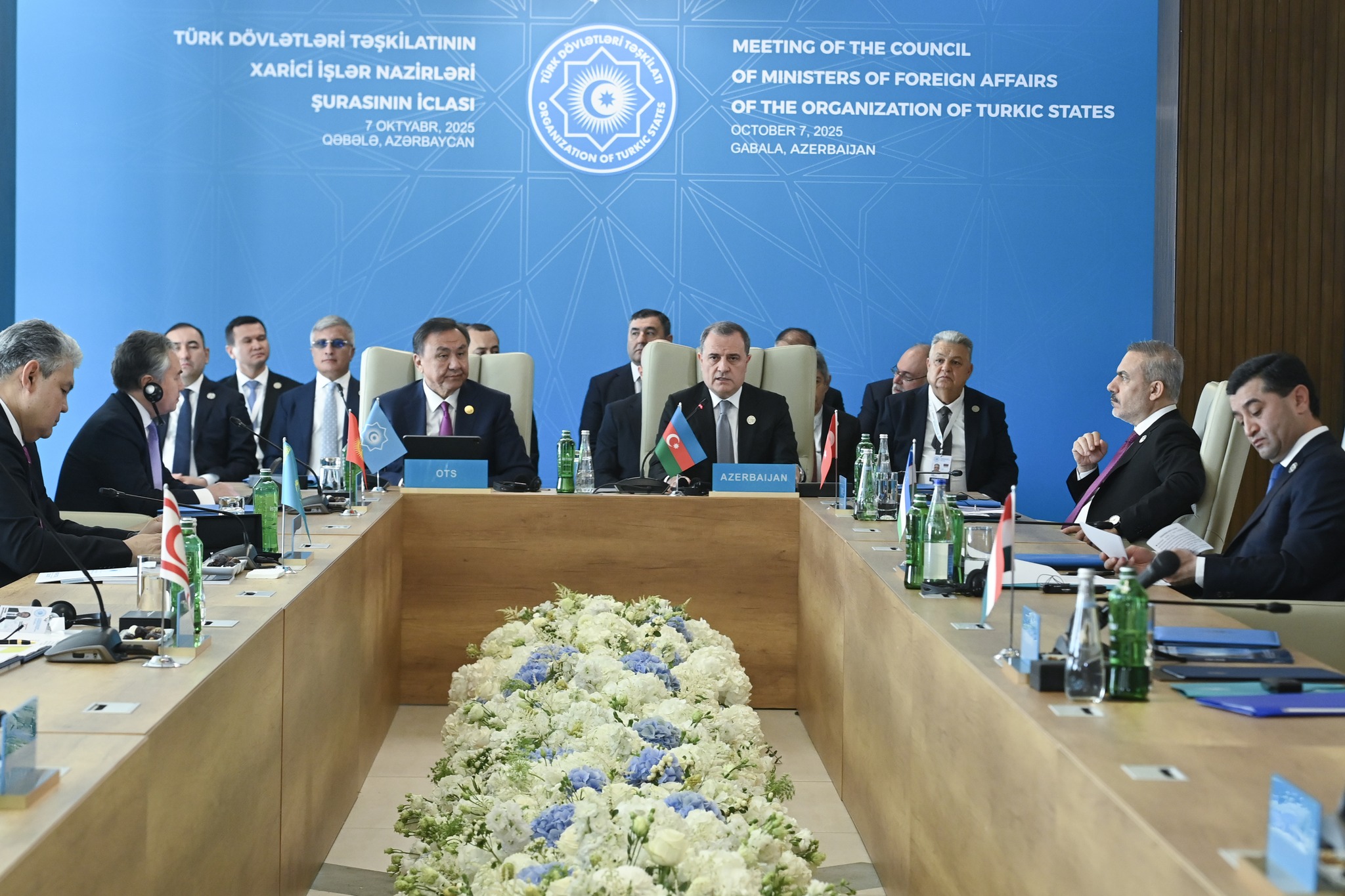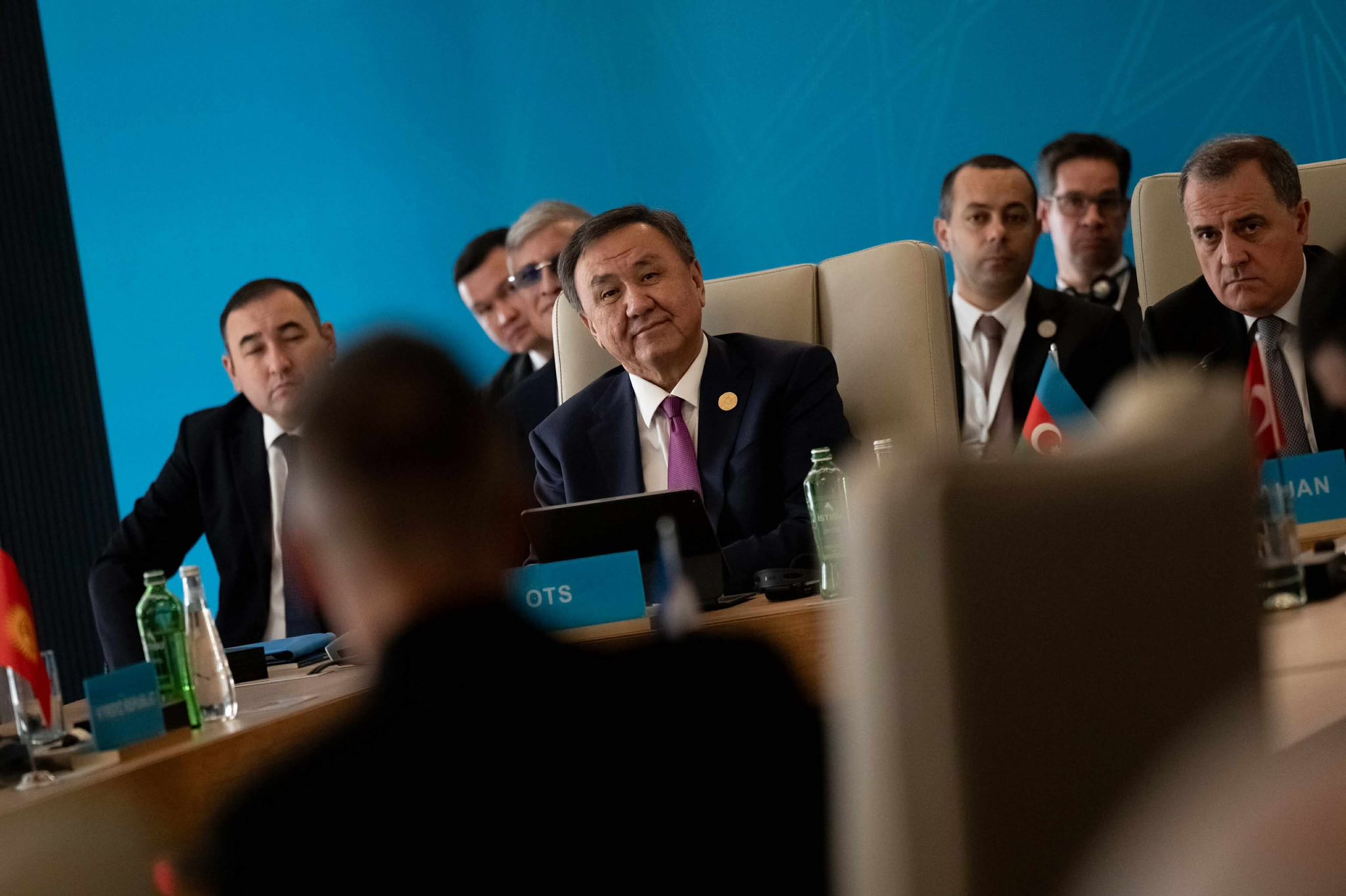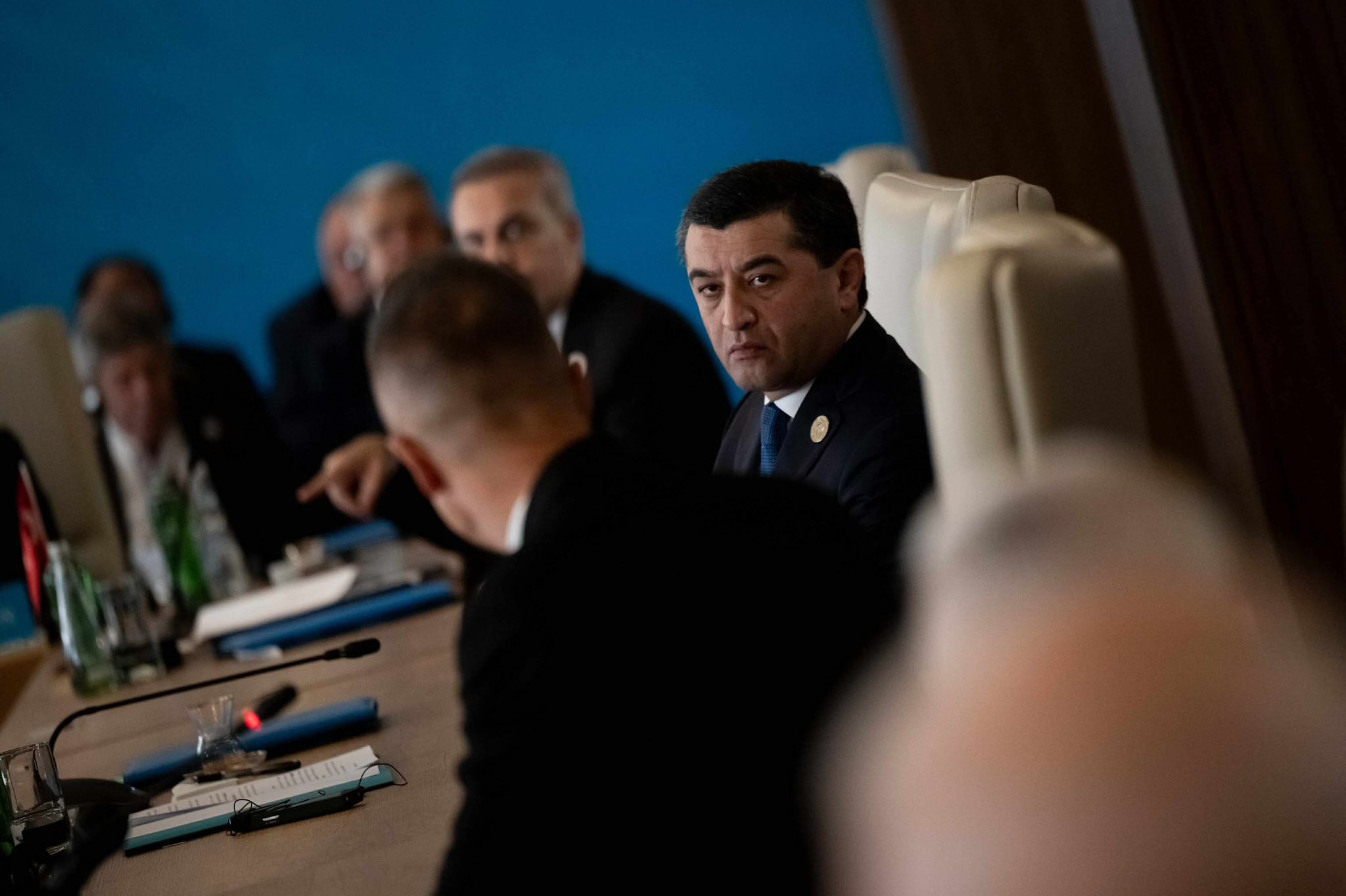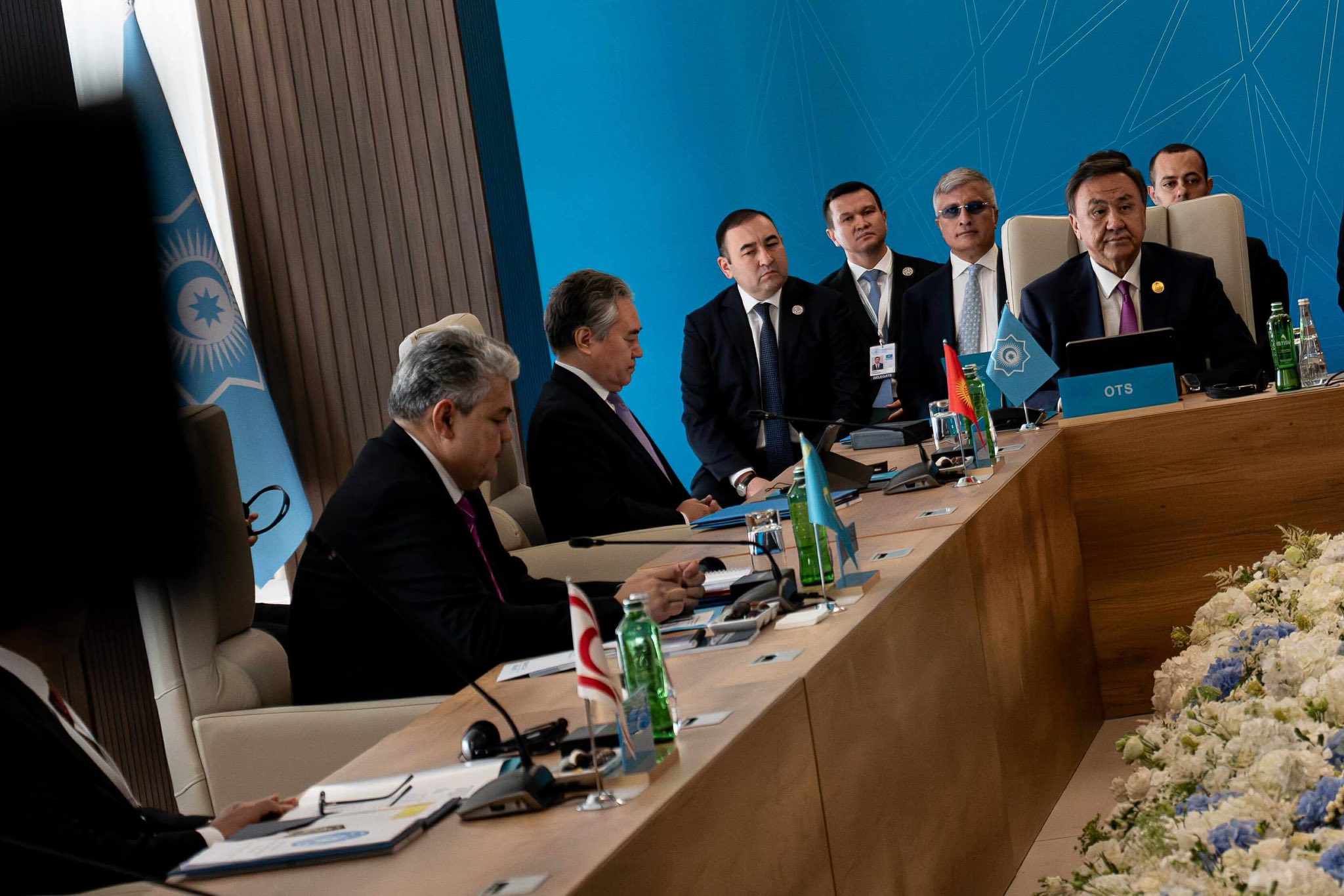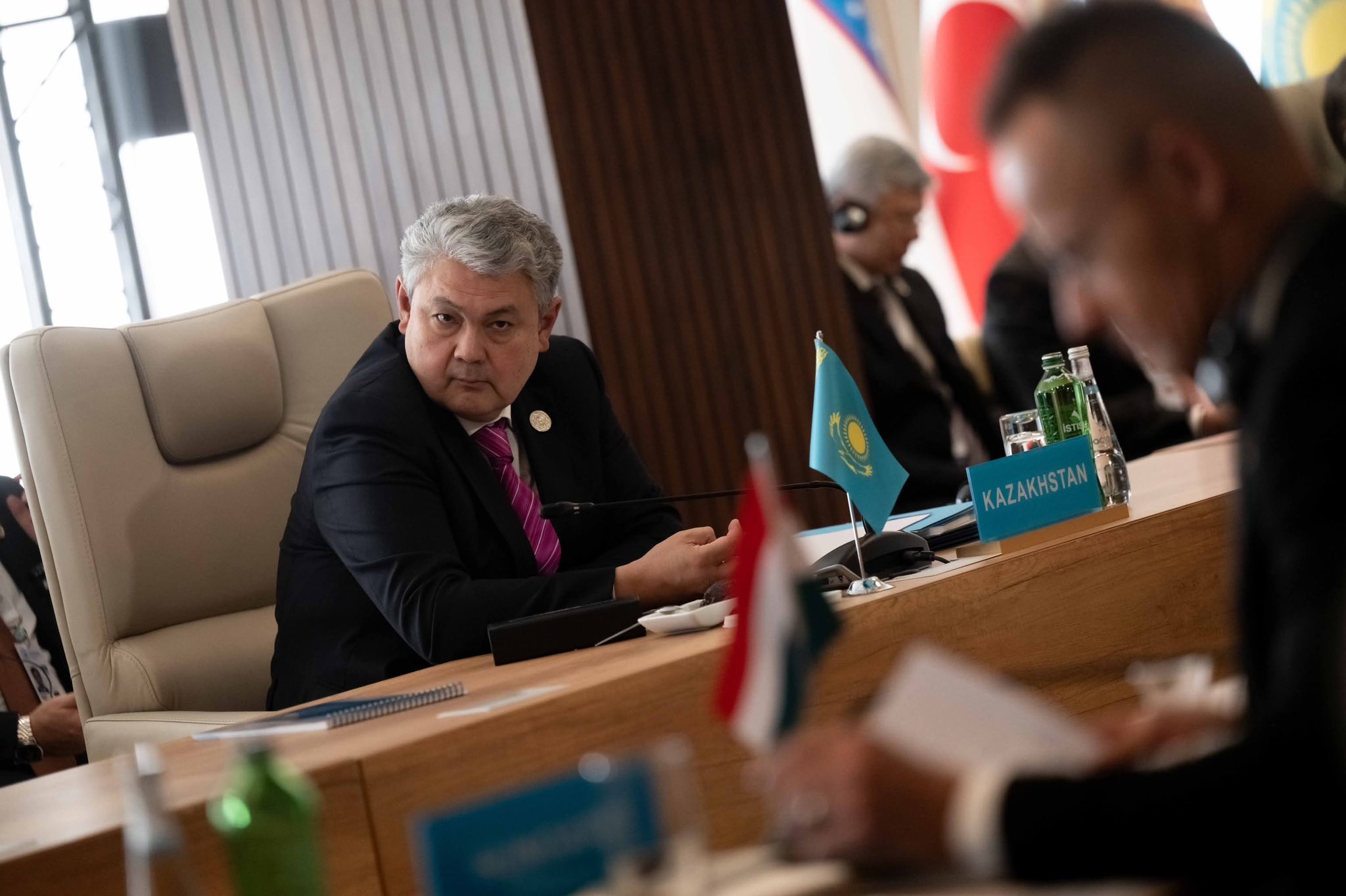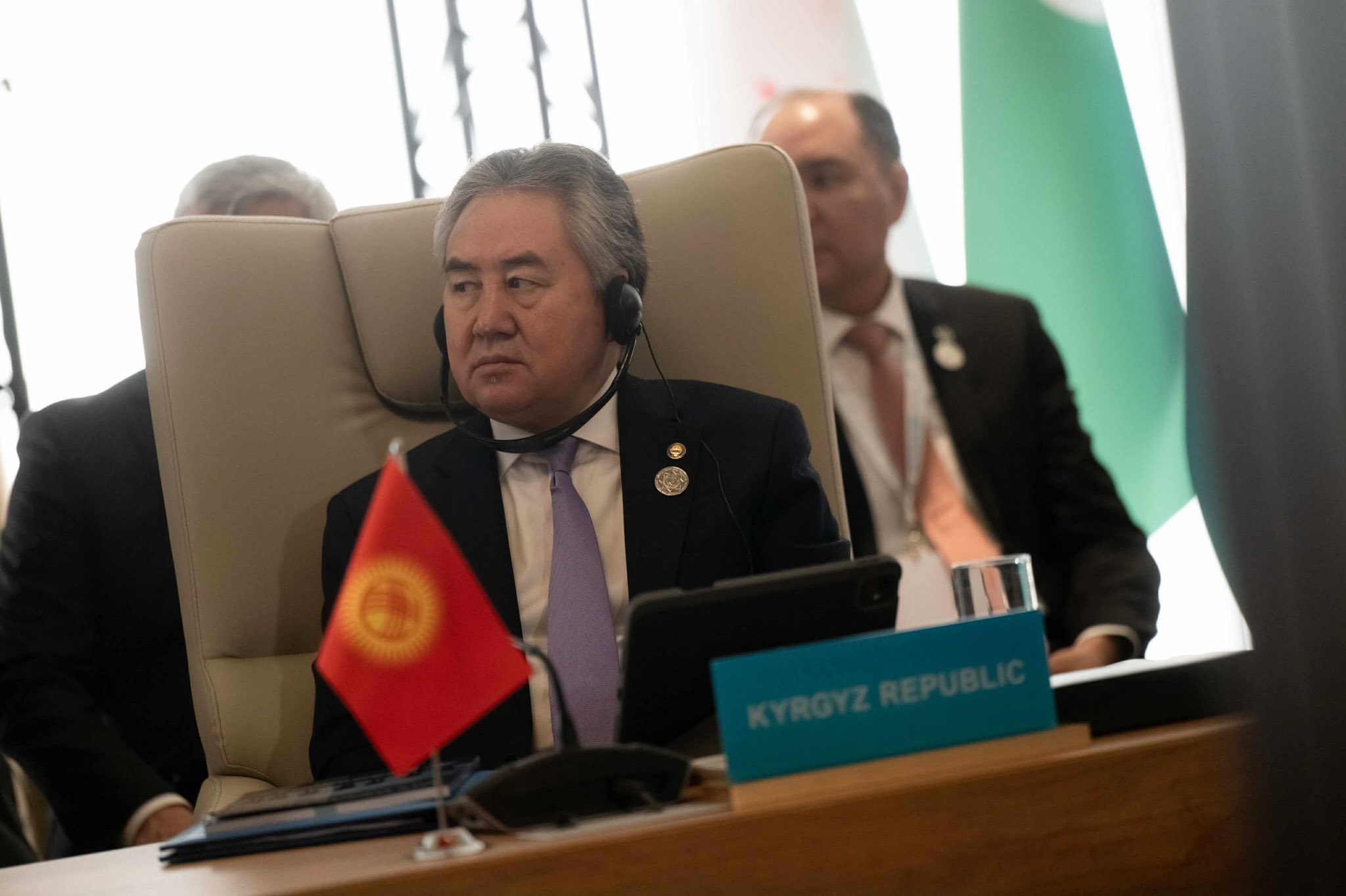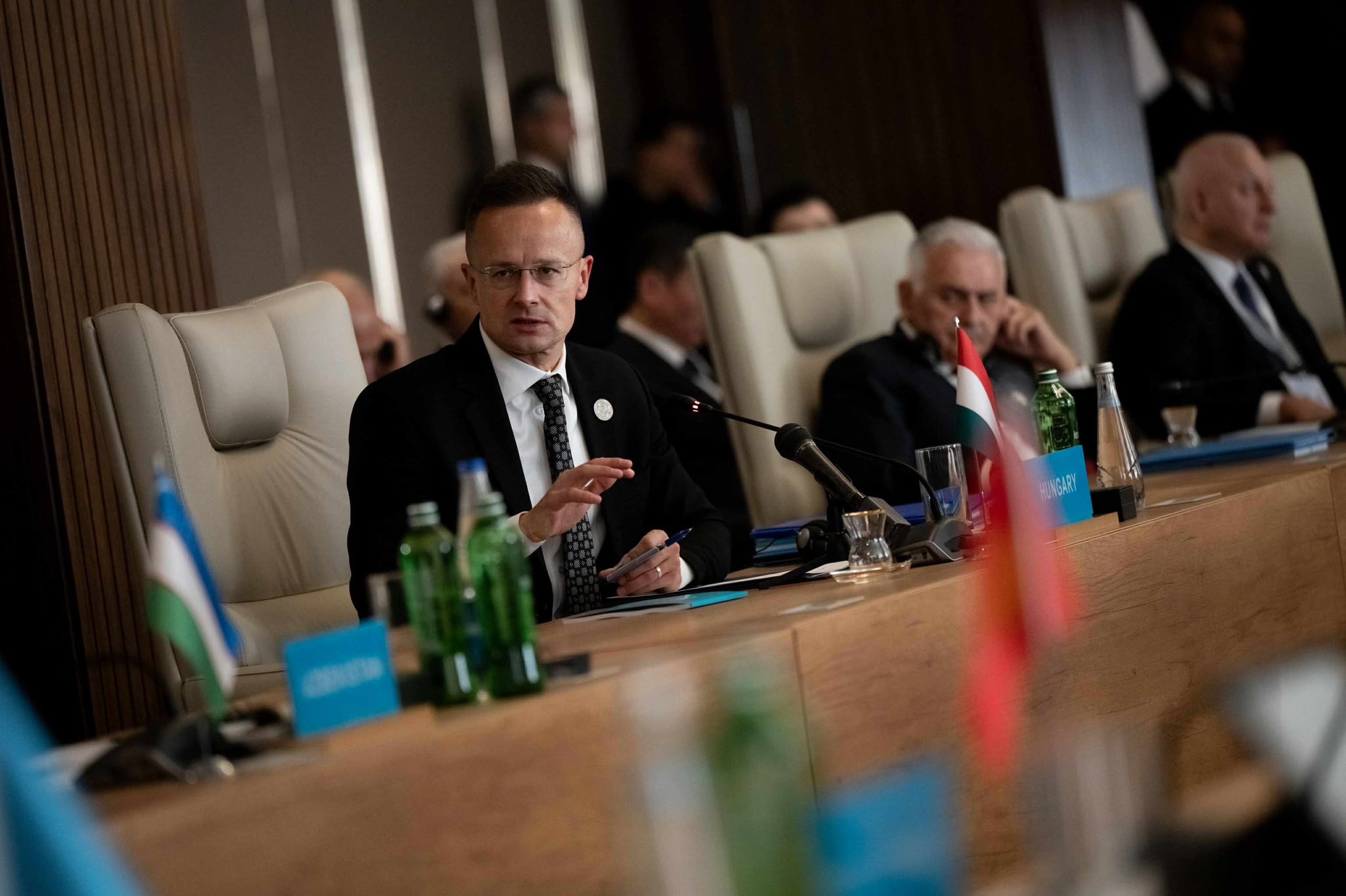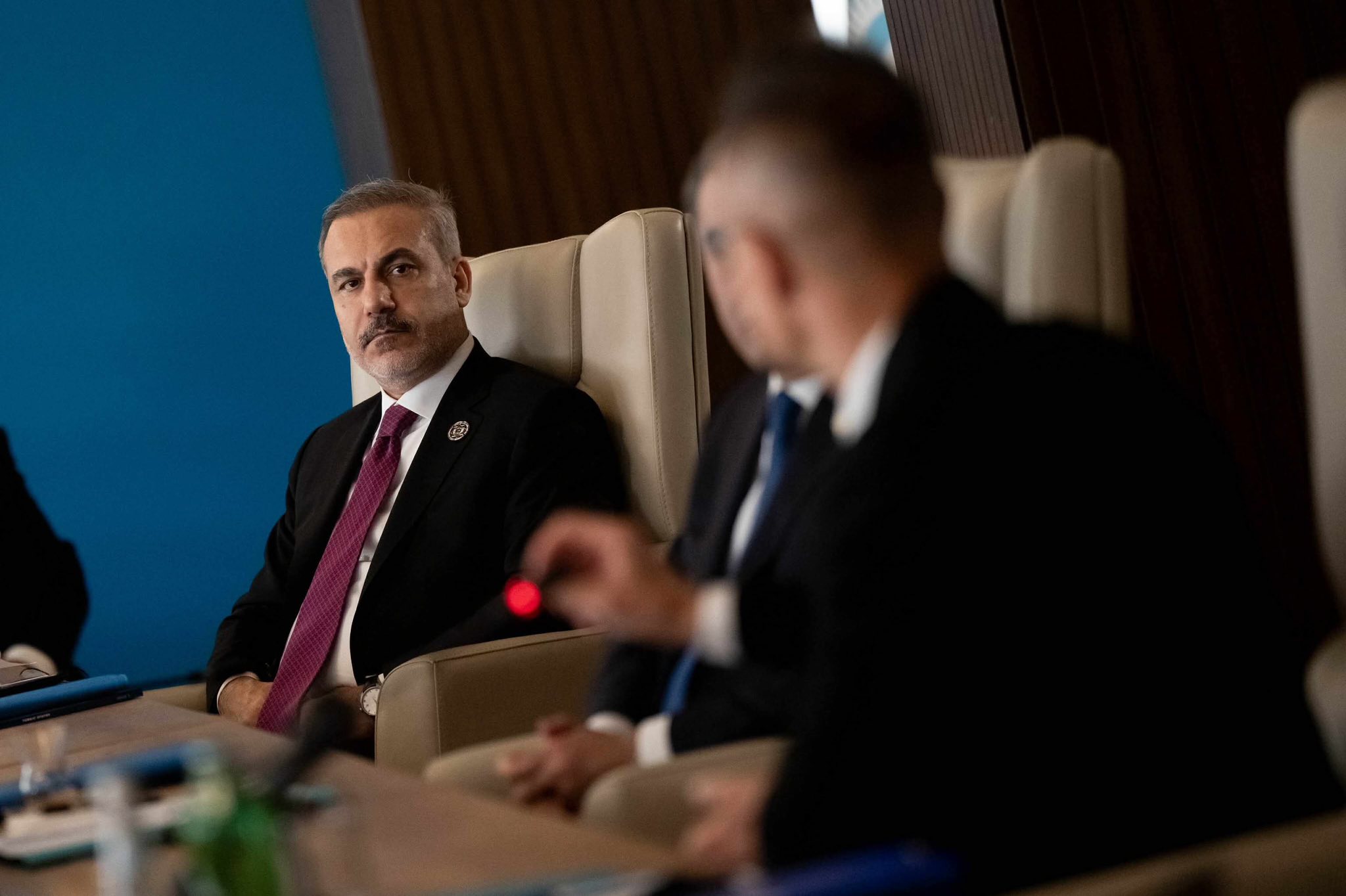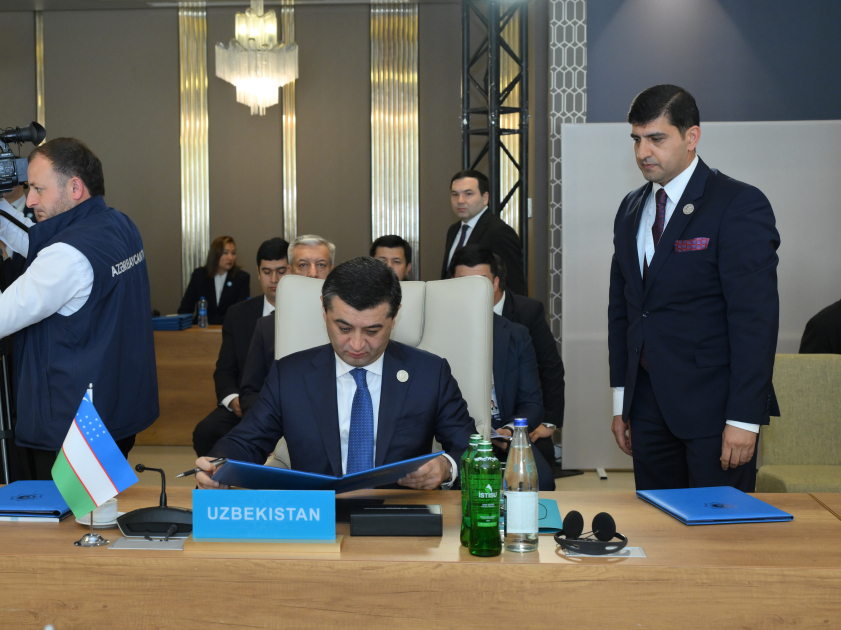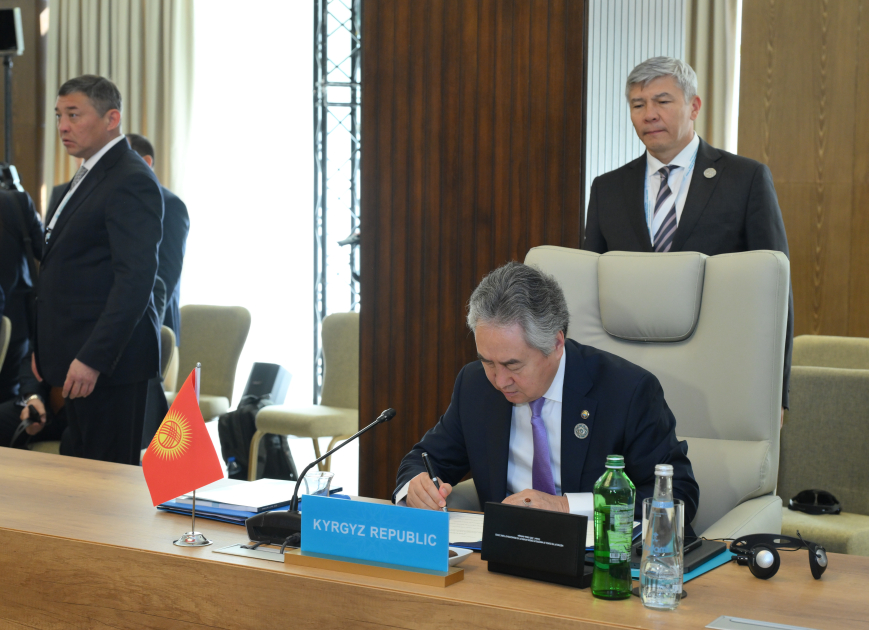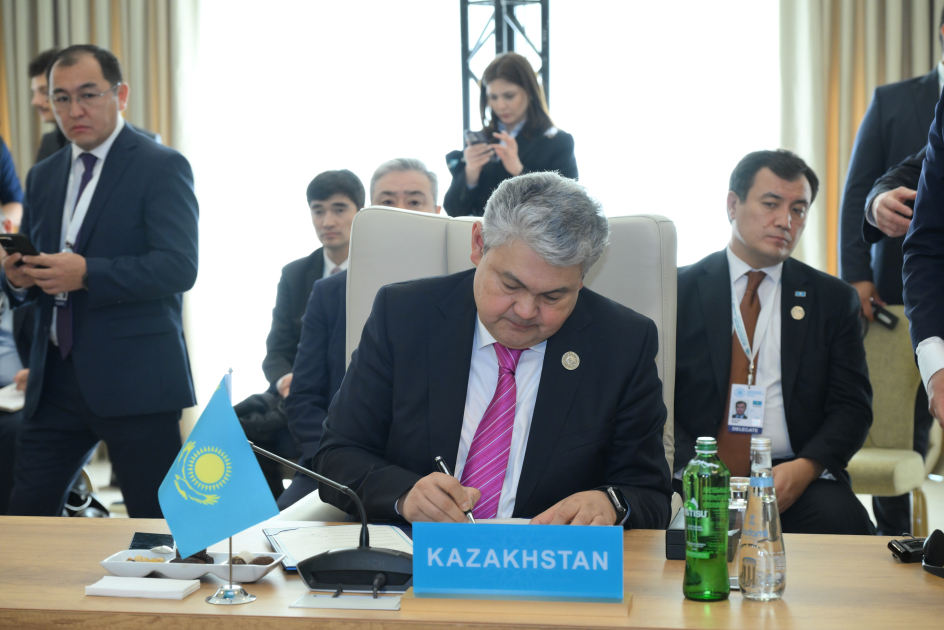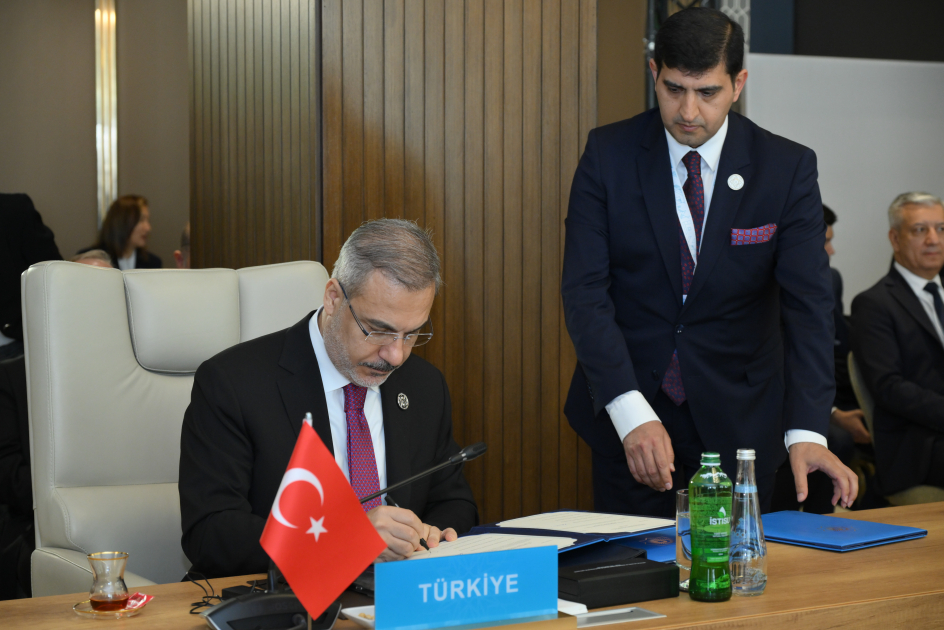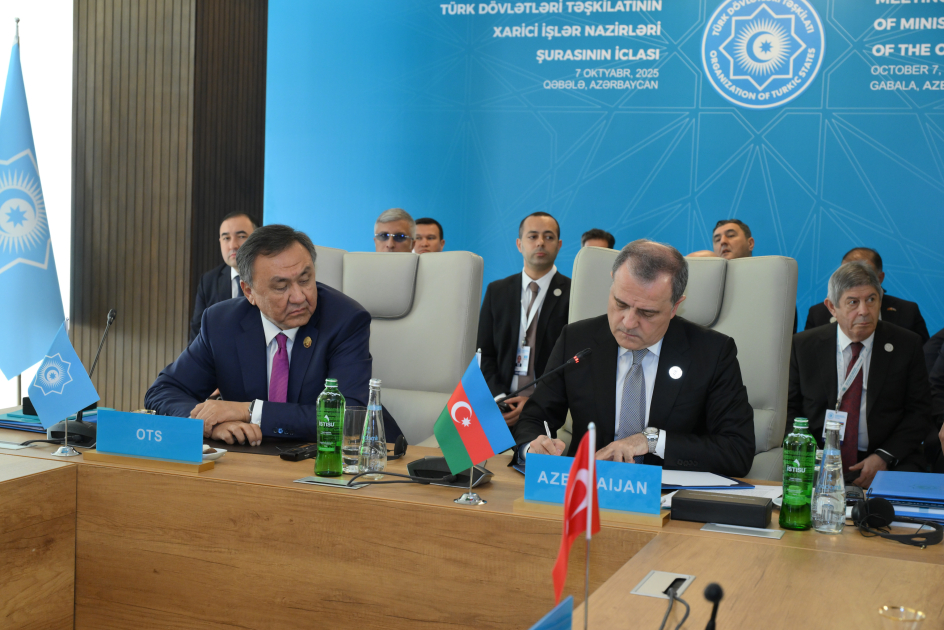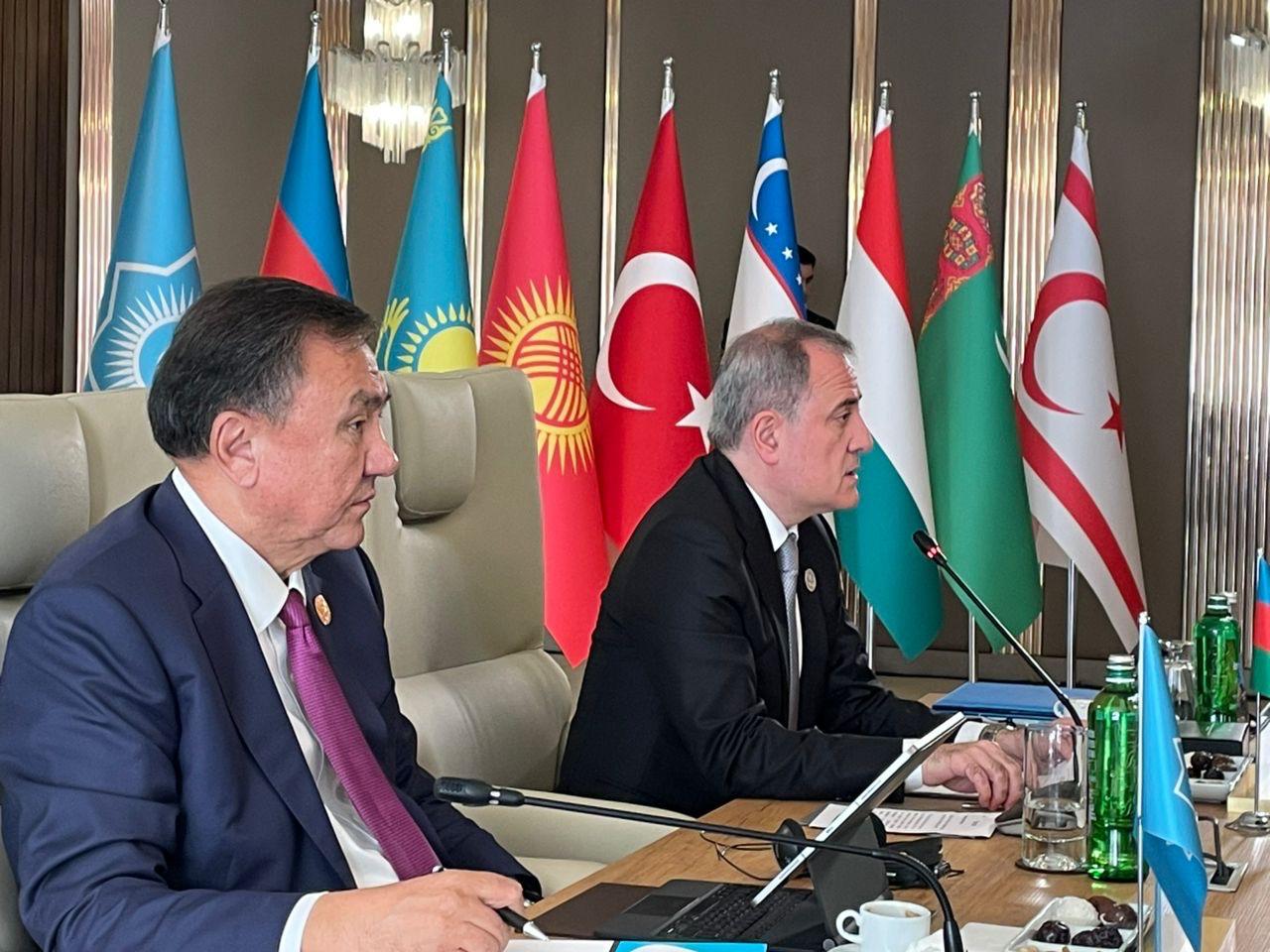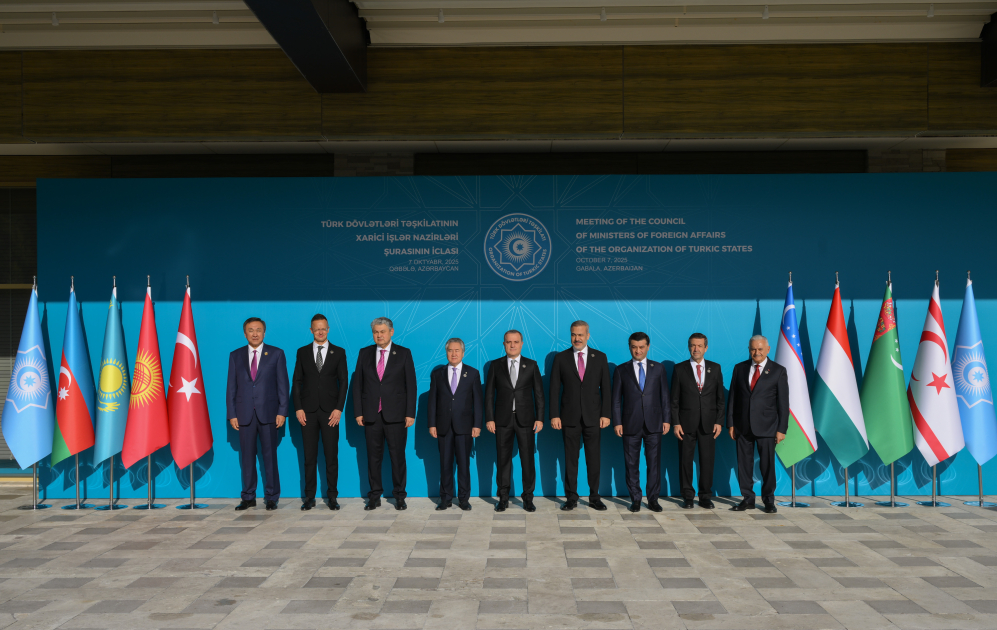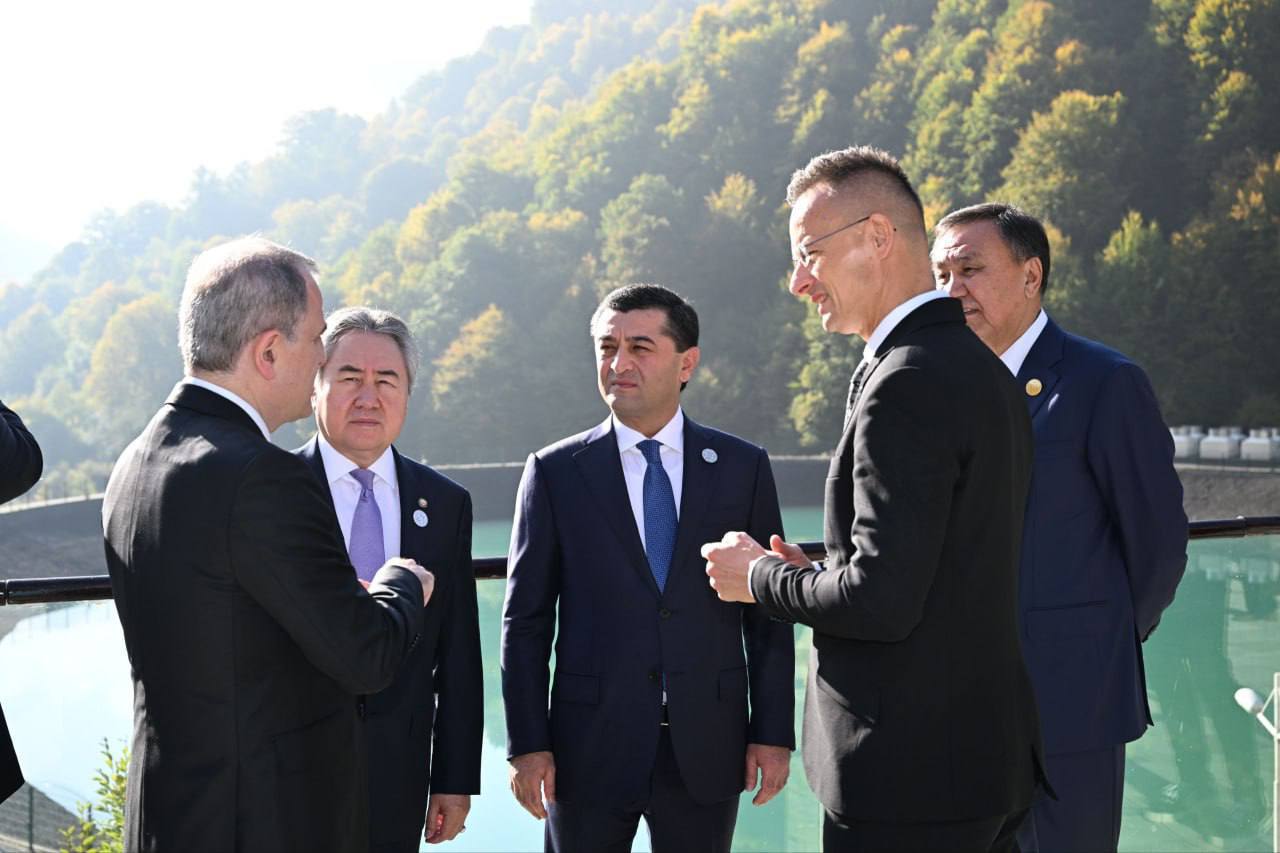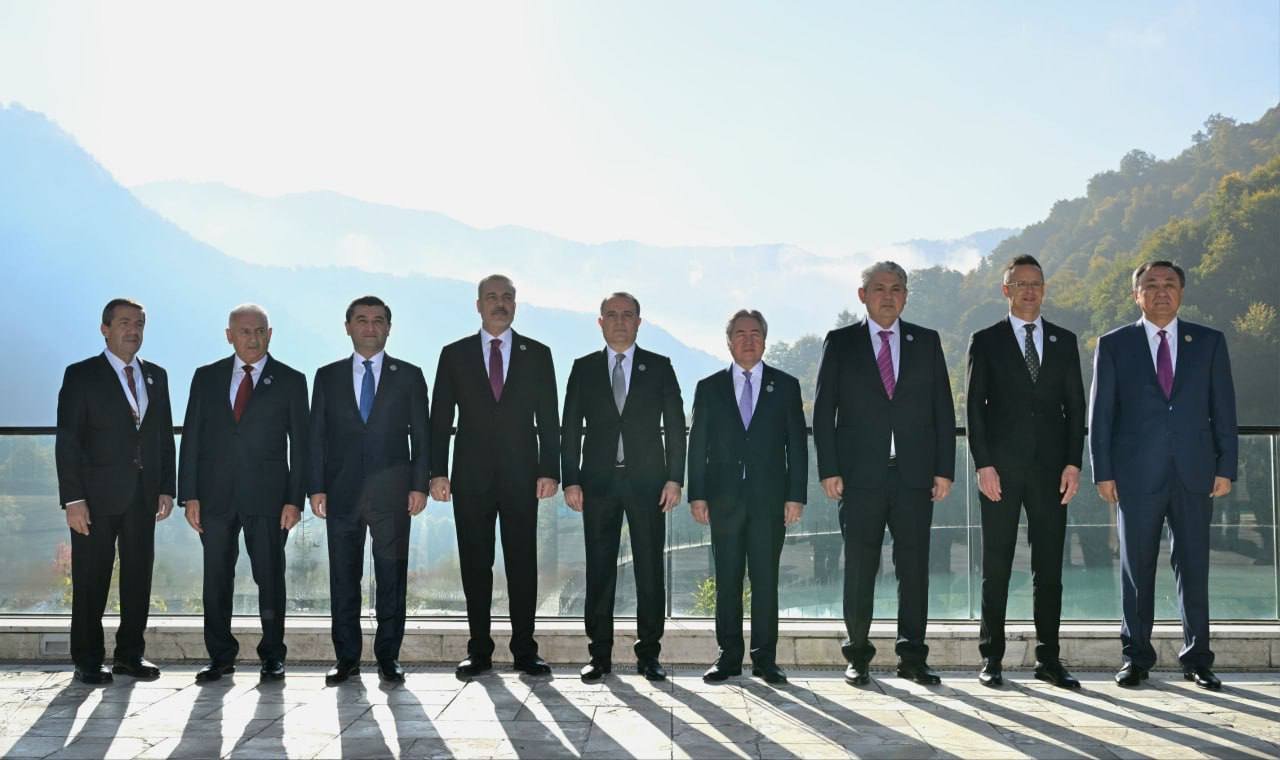The 12th Meeting of the Council of Foreign Ministers (CFM) of the Organization of Turkic States (OTS) convened on 7 October 2025 in Gabala, Republic of Azerbaijan, within the framework of the Twelfth Summit of the Organization of Turkic States.
Hosted by H.E. Jeyhun Bayramov, Minister of Foreign Affairs of the Republic of Azerbaijan, the meeting was attended by H.E. Yermek Kosherbayev, Minister of Foreign Affairs of the Republic of Kazakhstan; H.E. Zheenbek Kulubayev, Minister of Foreign Affairs of the Kyrgyz Republic; H.E. Hakan Fidan, Minister of Foreign Affairs of the Republic of Türkiye; H.E. Bakhtiyor Saidov, Minister of Foreign Affairs of the Republic of Uzbekistan; H.E. Peter Szijjártó, Minister of Foreign Affairs and Trade of Hungary; H.E. Tahsin Ertuğruloğlu, Minister of Foreign Affairs of the TRNC, and H.E. Amb. Kubanychbek Omuraliev, Secretary General of the OTS.
The Chairman and Members of the OTS Council of Elders (Aksakals), as well as the Heads of the Turkic Cooperation Organizations — including TURKPA, TURKSOY, the Turkic Academy, the Turkic Culture and Heritage Foundation, the Turkic Investment Fund, and the Union of Turkic Chambers of Commerce and Industry (TCCI) — also participated in the meeting.
The Ministers discussed the agenda and draft documents to be submitted for signing by the Council of Heads of State (CHS) at the 12th OTS Summit. These included the Gabala Declaration, the Decision on the establishment of the “OTS+” format, and the Decision on the development and strengthening of TURKSOY.
Secretary General Kubanychbek Omuraliev provided the Foreign Ministers with a comprehensive overview of the progress achieved under the Kyrgyz Chairmanship-in-Office and outlined the key priorities of the forthcoming Azerbaijani Chairmanship. He also briefed the Ministers on the activities of the OTS Secretariat and its affiliated institutions, highlighting the growing scope of cooperation among the Member and Observer States across more than 40 fields.
The Ministers reviewed and approved several important documents and exchanged views on enhancing multilateral cooperation among the Member States in key areas such as foreign policy coordination, economic integration, connectivity, energy, culture, and education.



